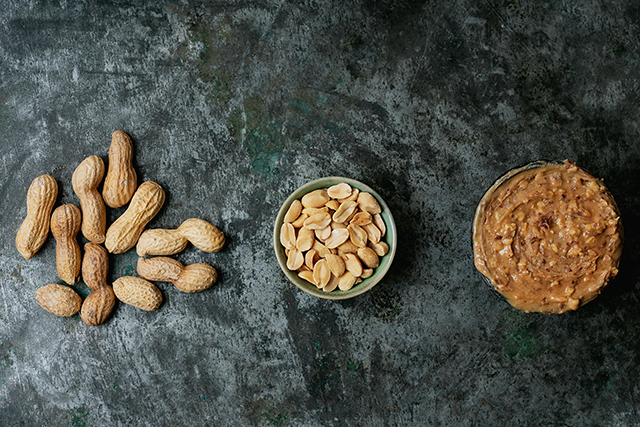The Environmental Impact of Peanut Butter Production: Sustainable Solutions
Peanut
butter is a nutritious spread loved by children and adults alike.
However, when we look at the larger picture and take into consideration the
environmental impact of peanut butter production, there are some interesting
stats that come to light. In this blog, we understand the environmental impact
associated with its production – from deforestation to greenhouse gas emissions
and more. Peanut
butter production can contribute to various environmental issues, but
there are sustainable alternatives and solutions to help mitigate the impact
and promote an eco-friendly industry.
Over the years, peanut butter production has streamlined as a
fairly straightforward process. Peanuts are procured – they are either
cultivated and harvested or sourced from farms across the country. It is then
primed for processing where it is washed, steamed and cleaned. The peanuts are
then sent to a manufacturing unit where they are converted into the famous
peanut butter with the addition of other ingredients like sugar, oils and fats.
The peanut butter is then packed and branded to be sent to distributors across
the globe following which the product hits the shelves for consumers to enjoy.
However, in the process, there are a couple of environmental issues that arise.
DEFORESTATION AND LAND USE
A significant environmental concern related to peanut
butter production is deforestation. The demand for peanuts leads to the
expansion of agricultural land, resulting in the clearing of forests and
natural habitats. Deforestation contributes to the loss of biodiversity,
increased greenhouse gas emissions, and soil erosion.
SOLUTION–
Sustainable peanut butter production focuses on promoting responsible land use
practices. This includes prioritizing the usage of existing agricultural land,
implementing agroforestry techniques, and supporting reforestation efforts. By
integrating trees and other crops within peanut plantations, farmers can
preserve biodiversity, improve soil health, and reduce the need for
deforestation.
WATER CONSUMPTION AND POLLUTION
Peanut farming requires water, but inefficient irrigation
practices can lead to water scarcity and pollution. Excessive water use
depletes local water sources and disrupts aquatic ecosystems. The use of
chemical fertilizers and pesticides in peanut production can contaminate water
bodies, causing harm to aquatic life and affecting water quality.
SOLUTION–
Sustainable peanut butter production emphasizes water conservation techniques,
like efficient irrigation systems and rainwater harvesting. Implementing these
methods can help optimize water use and reduce water pollution by minimizing
the application of chemicals. Promoting organic farming practices reduces
reliance on synthetic fertilizers and pesticides, minimizing water pollution
risks.
GREENHOUSE GAS EMISSIONS
Peanut butter production contributes to greenhouse gas
emissions. The use of fossil fuels in machinery and transportation releases
carbon dioxide into the atmosphere, exacerbating climate change. Furthermore,
the production and application of synthetic fertilizers emit nitrous oxide, a
potent greenhouse gas.
SOLUTION– To
tackle this issue, sustainable solutions focus on reducing energy consumption
and transitioning to renewable energy sources. This includes utilizing
solar-powered equipment and implementing energy-efficient technologies in
peanut processing facilities. Adopting sustainable agricultural practices like
crop rotation, cover cropping, and organic farming reduces the reliance on
synthetic fertilizers, thus minimizing nitrous oxide emissions.
PACKAGING WASTE
Another environmental concern associated with peanut butter
production is the generation of packaging waste. Plastic containers and
wrappers contribute to the growing global plastic pollution problem. Improper
disposal of packaging materials can lead to littering, landfills, or even
marine pollution.
SOLUTION– To
address this issue, we prioritize eco-friendly packaging options. We opt for
recyclable, biodegradable, or compostable packaging materials, reducing the
overall environmental impact. Promoting refillable or bulk options encourages
consumers to minimize packaging waste and embrace more sustainable consumption
practices.
Peanut
butter is a nutritious staple, but its production may have unpleasant
environmental consequences. However, by implementing sustainable solutions as
we do at Nuflower,
we can reduce the environmental impact associated with peanut butter production
and promote a more eco-friendly industry. These efforts contribute to the
preservation of biodiversity, the conservation of natural resources, and the
fight against climate change.




Comments
Post a Comment